11h00- 21h00
Entrée avec le billet « Musée et Expositions » au Centre Pompidou.
Dans le cadre de « Mutations/Créations 2 », manifestation aux croisements des disciplines, qui convoque la musique, l’architecture, le design et la parole, l’exposition « Coder le monde » tisse des liens entre les arts et met en évidence les points communs liés au développement des technologies numériques, à l’évolution des langages de programmation et à l’expansion des réseaux. L’exposition fait apparaître un univers esthétique et critique commun qui questionne notre quotidien entièrement irrigué par les logiques numériques.
Déployée sur les 500m2 de la Galerie 4 du Centre Pompidou, l’exposition se déploie en six sections : l’histoire du code, les Algoristes (mouvement international d’artistes plasticiens de 1955 à 1975) ; la musique et le code ; les littératures numériques ; la conception digitale des formes en architecture et en design ; le corps et le code. La timeline « Musique » propose une typologie des rapports entre théorisation musicale et formalisation mathématique, montrant l’émergence de paradigmes ayant accompagné l’idée même de codage. On passe ainsi de la vision combinatoire du monde du XVIIe siècle aux premières machines mécaniques pour calculer la musique du XIXe siècle, ouvrant la voie à la composition algorithmique et aux recherches du XXe siècle autour du temps réel, de la micro-informatique, des langages de programmation, de l’informatique ubiquitaire, du web audio et de la créativité artificielle.
Commissariat : Frédéric Migayrou, directeur adjoint du Musée national d’art moderne. Commissaire associée : Camille Lenglois, attachée de conservation au Mnam-CCI. Timeline « Musique » : Moreno Andreatta, directeur de recherche au CNRS, Ircam-STMS-Sorbonne Université, avec la contribution de Roseline Drapeau, documentaliste hypermédia Ircam.
Pockets of Space
Installation sonore et visuelle en réalité virtuelle (version exposition), création 2018
Le collectif OpenEndedGroup, spécialiste de la projection visuelle en 3D et la compositrice Natasha Barrett, exploratrice de la projection spatiale d’une scène sonore, ont croisé pour la première fois leurs imaginaires. Dans Pockets of Space, un même algorithme de croissance, un même rythme de respiration engendrent l’évolution de l’image et du son, le passage du point à la figure, d’une source sonore identifiable à son abstraction musicale.
OpenEndedGroup (Marc Downie et Paul Kaiser) vidéo
Natasha Barrett musique
Benjamin Lévy réalisation informatique musicale Ircam
An Experiment With Time
Installation sonore et visuelle
John William Dunne, ingénieur en aéronautique, soldat et philosophe passionné de pêche à la mouche sèche, écrivit en 1927 une « expérience avec le temps ». Il y fait coexister passé et futur, rêves prémonitoires et rêves qui ne se réfèrent ni au souvenir ni à l’anticipation. Marqué par cette tentative excentrique, le compositeur italien Daniele Ghisi s’est embarqué dans cette curieuse machine à dilater le temps. Par le biais d’alias projetés sur les écrans et de bases de données électroniques, son installation emboîte plusieurs cycles différents – une journée, un an et une vie, considérée elle-même comme polyrythmie.
Daniel Ghisi installation sonore, vidéo et animation
Inspirée du livre éponyme de John W. Dunne
Avec le soutien du réseau ULYSSES, subventionné par le programme Europe Créative de l'Union européenne et de la Sacem.
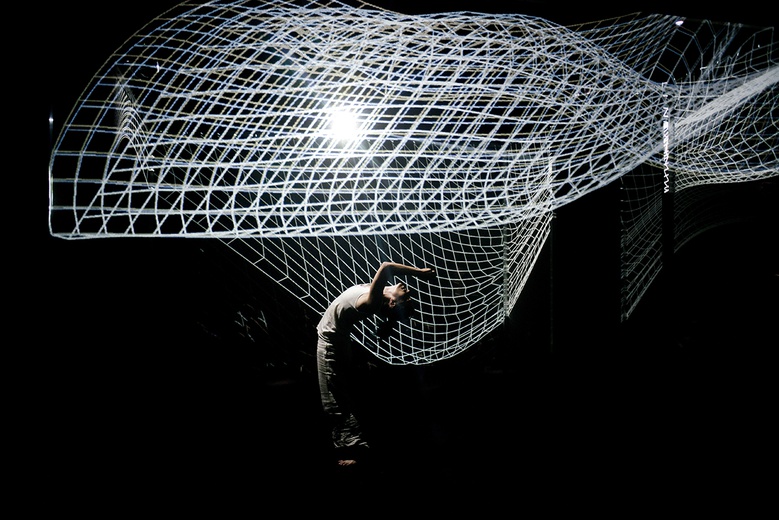 Le ballet interactif Hakanaï, d'Adrien Mondot et Claire Bardainne © Romain Etienne / item
Le ballet interactif Hakanaï, d'Adrien Mondot et Claire Bardainne © Romain Etienne / item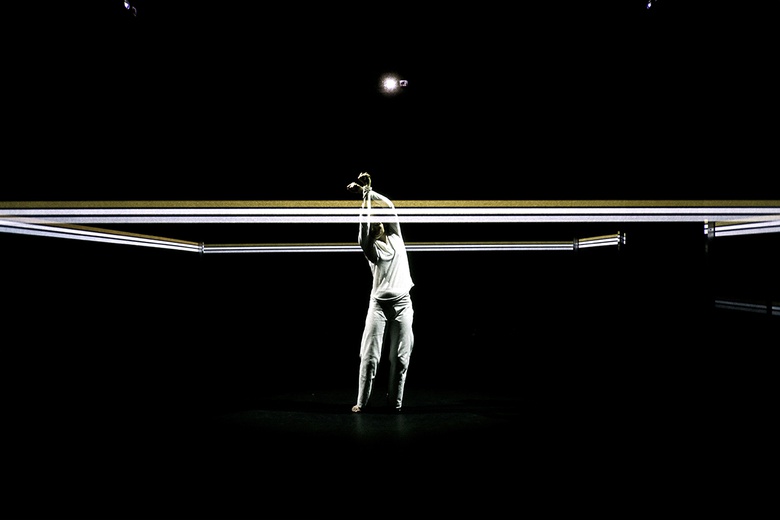 Le ballet interactif Hakanaï, d'Adrien Mondot et Claire Bardainne © Romain Etienne / item
Le ballet interactif Hakanaï, d'Adrien Mondot et Claire Bardainne © Romain Etienne / item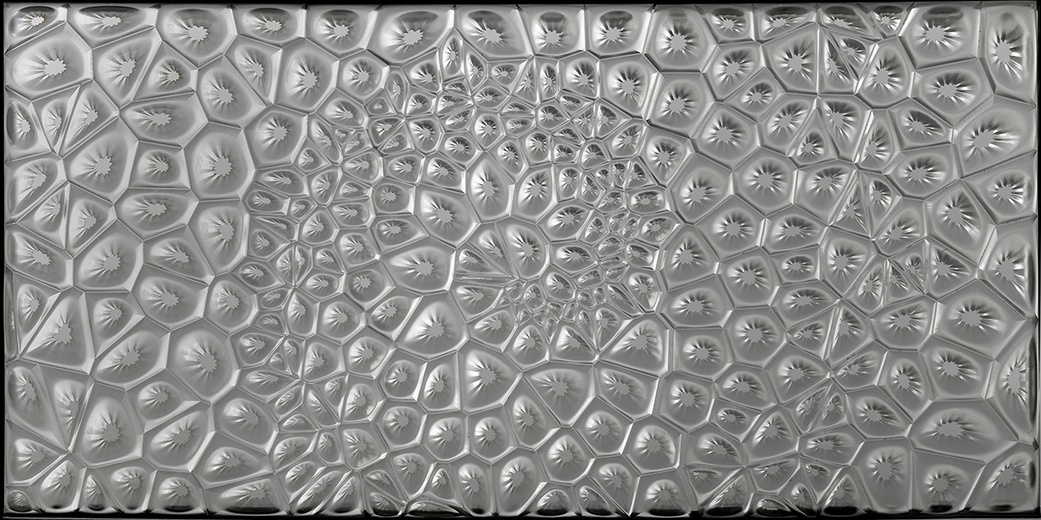 © DR
© DR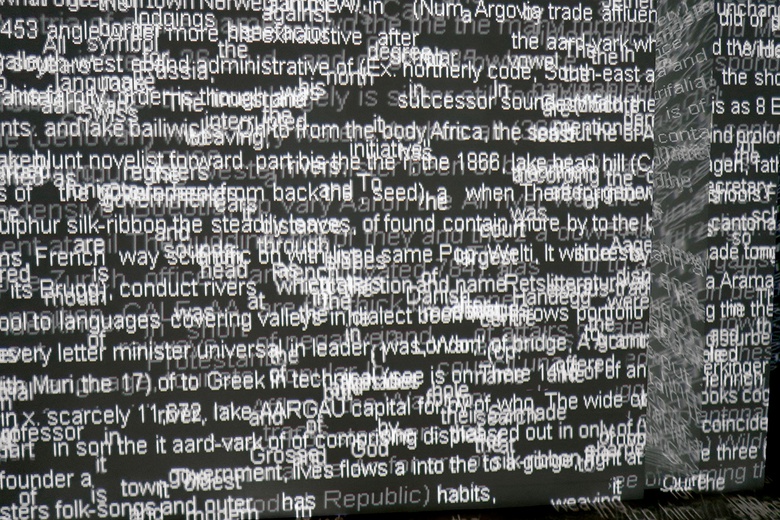 © Charles Sandison
© Charles Sandison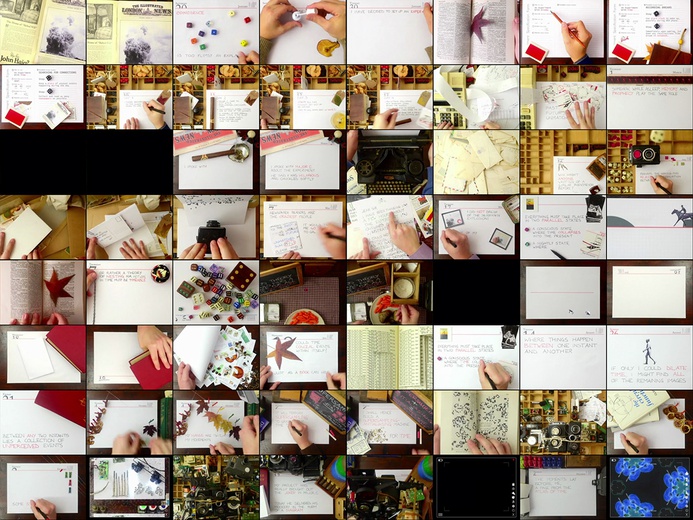 An Experiment With Time © Daniele Ghisi
An Experiment With Time © Daniele Ghisi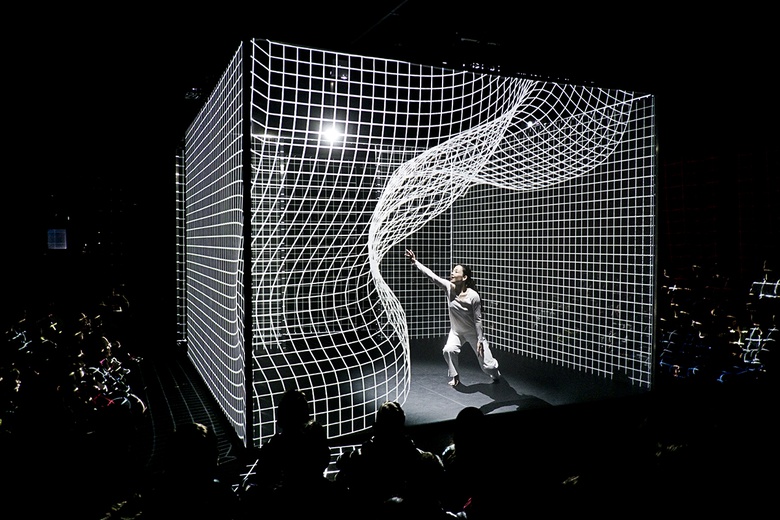 Le ballet interactif Hakanaï, d'Adrien Mondot et Claire Bardainne © Romain Etienne / item
Le ballet interactif Hakanaï, d'Adrien Mondot et Claire Bardainne © Romain Etienne / item


